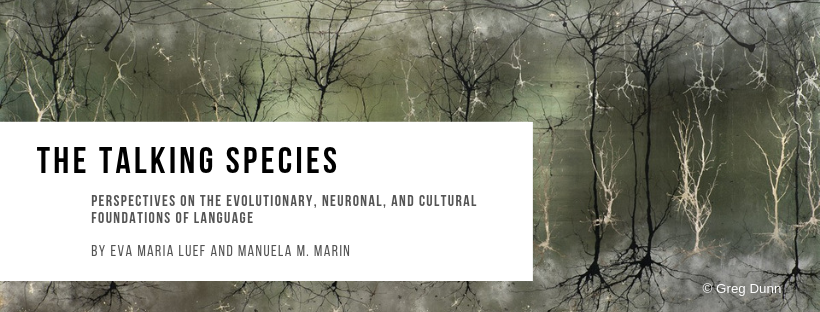
 |
Humans are uniquely characterized by having a complex language and the ability to speak. Studying the cognitive foundations of language is one of the most challenging endeavors in linguistics and related fields as it spans a wide range of research disciplines which all contribute to our understanding of language. The goal of this volume is to present current reviews and research reports which examine the phenomenon of language from different perspectives. To be specific, the biological, neuronal and social pillars of linguistic cognition are discussed within their different theoretical and methodological frameworks, offering a diversity of perspectives that will contribute to meaningful cross-fertilization across several disciplines.
Divided into five sections, this volume provides the reader with insights into the evolutionary dynamics underlying the phylogenetic emergence of language, the psychological and physiological factors influencing language acquisition and development during ontogeny, the cognitive constraints on second language learning imposed by neurobiology, and the interactive relationship between cultural predisposition and language use.
Given the multi-disciplinary nature of the contributions, this liber amicorum will interest researchers and students in the fields of cognitive linguistics, psychology and evolutionary biology alike.
Section I Language Evolution
01. Eva Maria Luef: Tracing the human brain’s classical language areas in extant and extinct hominids
02. Robert Ullrich and Katja Liebal: Times change, values change: Criteria for attributing language in species comparative research
03. Adolf Heschl: From grasping to pointing: The evolution of referentiality in man and animals
04. Piera Filippi and Bruno Gingras: Emotion communication in animal vocalizations, music and language: An evolutionary perspective
05. Manuela M. Marin: Speech processing in congenital amusia: A review of the literature and future directions
Section II Language Development
06. Iulia Bădescu: The attainment of independence from the mother in primate infants and its implications for the evolution of cooperative breeding in hominins
07. Monika Abels, Mariek Vanden Abeele, Toke van Telgen and Helma van Meijl: Nod, nod, ignore: An exploratory observational study on the relation between parental mobile media use and parental responsiveness towards young children
08. Annette Hohenberger: Episodic and phenomenal aspects of chaotic itinerancy in language development
09. Elliot Murphy: Interfaces (traveling oscillations) + Recursion (delta-theta code) = Language
Section III Language Learning
10. Margit Reitbauer: Lessons learned from brain responses: The second language learning experience
11. Pia Resnik: The effect of age in L2 ultimate attainment: Revisiting the evidence
12. Milena Kong-Insam: Age constraints in phonological learning: On the relevance and efficiency of pronunciation training
13. Sabrina Turker: Exploring the neurofunctional underpinnings of dyslexia: A review focusing on dyslexic children
Section IV Writing about the Brain
14. Peter Bierbaumer: HEAFOD (‘head’) and BRÆGEN (‘brain’) in Old English medical texts
15. Georg Marko and Ute Wimmer: The brain is like a muscle – the brain is like a control center: Conceptualizing the brain in expert and popularized scientific discourses
Section V Cultural Aspects of Language Use
16. Manuela Wagner, Fabiana Cardetti and Michael Byram: The humble linguist: Interdisciplinary perspectives on teaching intercultural citizenship
17. Johannes A. Scherling: Frames, cognition, ideology. And Chomsky.
18. Wolfgang Viereck: Monats- und Wochentagsbezeichnungen im Wandel der Zeit